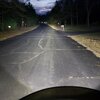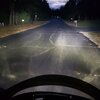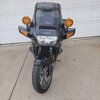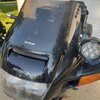Andrew Shadow
Site Supporter
More to the point is that the regulators in Canada and the US missed the boat on lighting regulations at the time that the ST was released to these markets.I long ago realized Honda missed the boat on a couple items and on a couple more they weren't even close to the harbor.
The head light is one of those misses.
Europe did not have the same restrictions and therefore vehicles had better lighting. The regulations mandate that a headlamp of the design used on the ST can not have bulbs that exceed 45 W. This is not unique to the Honda ST. Quite a few other motorcycles use the same reduced wattage bulb, having the same odd-ball base as does the ST, to meet the same requirements imposed in North America.

![20230121_151028[1].jpg](/forums/data/attachments/172/172239-ee599dc8bef858eea77fb9cdb029da2f.jpg)
![20230121_162427[1].jpg](/forums/data/attachments/172/172240-06a2929ca006ad82246167aa75e33c60.jpg)
![20230126_104052[1].jpg](/forums/data/attachments/172/172243-0ed177f527551b50f426fafda8d26771.jpg)




![20230121_162427[1].jpg](/forums/data/attachments/191/191764-06a2929ca006ad82246167aa75e33c60.jpg)
![20230520_071144[1].jpg](/forums/data/attachments/191/191765-48df05c30396911e6b1d8e6ec7ee6999.jpg)

![20230121_162427[1].jpg](/forums/data/attachments/216/216399-06a2929ca006ad82246167aa75e33c60.jpg)
![20230126_104052[1].jpg](/forums/data/attachments/216/216400-0ed177f527551b50f426fafda8d26771.jpg)